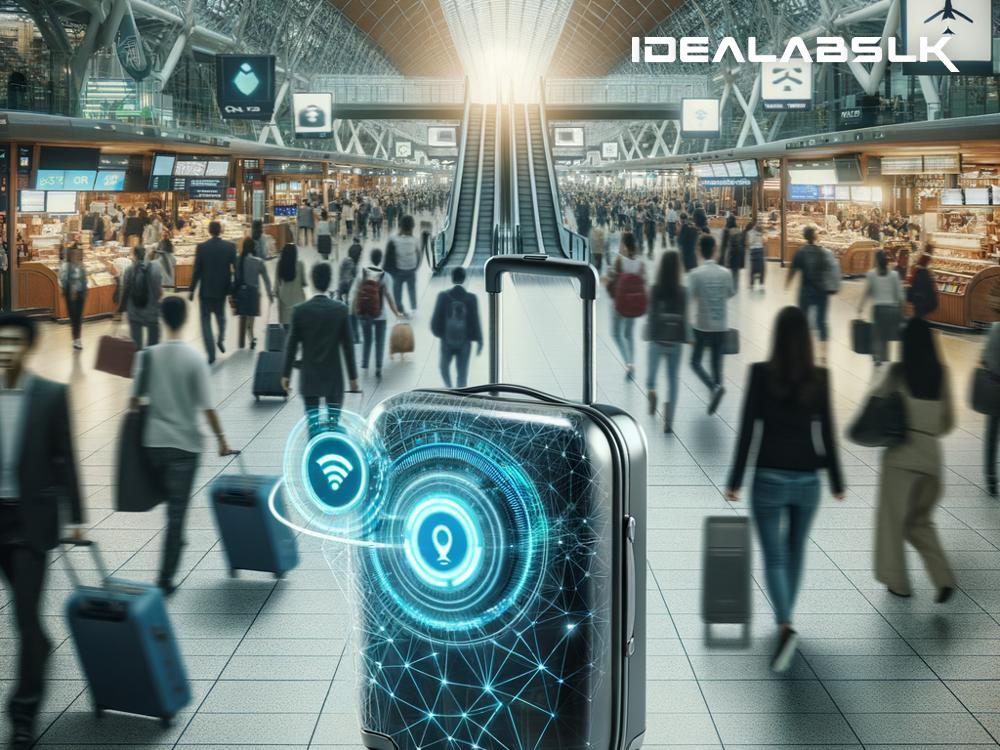How AI Is Changing the Game for Smart Luggage Navigation
Imagine this: you're rushing through a crowded airport, trying to make it to your gate on time. Your hands are full, and the last thing you want to worry about is dragging your luggage behind you. Now, picture your suitcase smartly following you around, dodging obstacles, and keeping pace with your hurried steps without you having to touch it. Sounds like something out of a science fiction novel, right? Well, thanks to advancements in artificial intelligence (AI), this futuristic scenario is fast becoming a reality. Today, let's explore how AI is revolutionizing the way we interact with our luggage, making travel more convenient than ever before.
Understanding Smart Luggage
Before diving into the wonders of AI-enhanced luggage, let's clarify what we mean by "smart luggage." Essentially, smart luggage refers to suitcases equipped with electronic features designed to improve the travel experience. These features can include GPS tracking, USB charging ports, electronic locks, and, most notably, autonomous movement.
The Role of Artificial Intelligence
Artificial intelligence, at its core, is about creating machines that can learn, plan, and solve problems like humans do. When it comes to smart luggage, AI is the brains behind the suitcase, enabling it to understand and navigate the world around it. Here’s how AI is making smart luggage smarter:
1. Autonomous Navigation
The most exciting feature of AI-equipped suitcases is their ability to move autonomously. Using a combination of sensors, cameras, and AI algorithms, these suitcases can follow their owners through crowded spaces, avoid bumping into obstacles or people, and stay on course. The AI constantly learns from its environment, making split-second decisions to ensure smooth navigation.
2. Obstacle Detection and Avoidance
One of the challenges of navigating through busy areas is the presence of obstacles. AI solves this problem by using technologies like LiDAR (Light Detection and Ranging) or sonar sensors that measure distances to objects by emitting lasers or sound waves. This data helps the suitcase understand the shape and proximity of potential obstacles, allowing it to maneuver around them gracefully.
3. Learning from Interactions
Every trip is a learning opportunity for AI. With machine learning algorithms, smart luggage can analyze data from past journeys to improve future performance. For example, if the suitcase encountered difficulties navigating through tight spaces, the AI could adjust its algorithms to handle similar situations better next time. This continuous learning process means that smart luggage becomes more adept at navigating over time.
4. Personalization
AI doesn't just make luggage smarter; it makes it more personal. Through user interactions, smart luggage can learn the walking speed, preferred routes, and even the unique gait of its owner. This means that the suitcase can adjust its following speed and behavior to match the owner's preferences, making the travel experience more tailored and comfortable.
Benefits of AI-Enhanced Smart Luggage
The advantages of having a suitcase that knows where to go and how to get there are numerous. For travelers, it means less physical strain, as they don’t have to carry or pull their luggage. It also adds a layer of security, as the suitcase can alert its owner if it gets too far away or encounters a problem. Moreover, the GPS tracking feature ensures that even if the luggage is lost, it can be easily located.
The Future Is Here
The integration of AI into smart luggage represents a significant leap forward in making travel seamless and stress-free. As technology continues to evolve, we can expect even smarter suitcases with more advanced features, such as voice control, facial recognition, and even mood detection to further enhance the user experience.
In conclusion, the advent of AI in the realm of smart luggage is not just a convenience; it's a game-changer. It promises to make our travel experiences more personalized, efficient, and enjoyable. As we stand on the brink of this new era of intelligent travel companions, one thing is clear: the future of travel looks brighter – and smarter – than ever.

